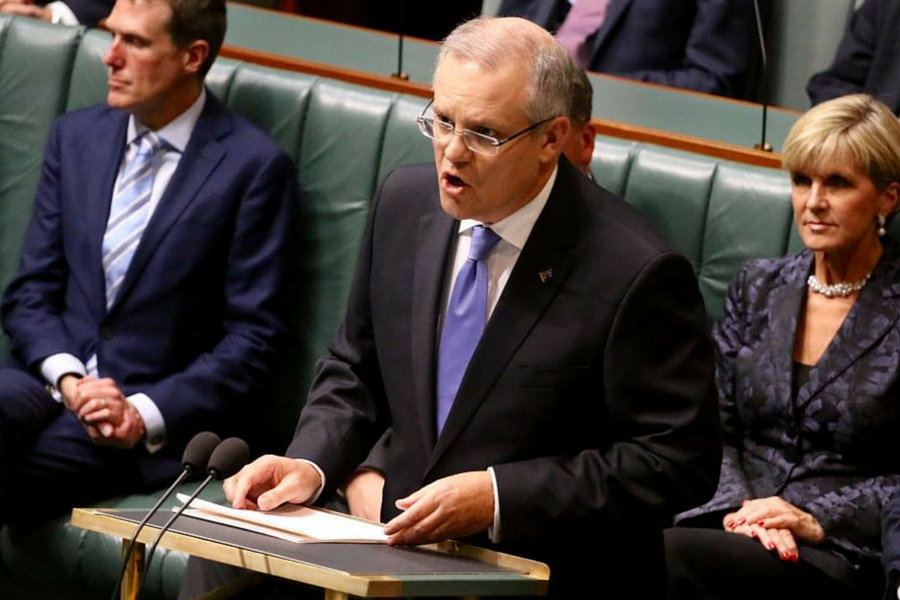Federal Treasurer Scott Morrison warned a gathering of ICT professionals today that the sector must do more to explain the benefits of leveraging technology to the wider population if Australia is to get ahead in the digital economy.
Speaking at the launch of the Australian Computer Society’s Technical White Paper on Data Sharing Frameworks, Morrison said, “We know that this whole area, while it contains enormous opportunities, can also be incredibly intimidating to people, and it’s often very hard for them to understand the real changes and improvements in living standards that it can deliver for them and how, when it’s harnessed for their purpose and their benefit, there are big changes that can be made.
“People need to be able to understand that we need to be able to communicate clearly why this helps them. If it has no utility for them, don’t expect them to be interested. We have to be able to explain the benefits, not the features; the benefits are what will sell the change.”
This failure to effectively communicate the benefits of tech to wider Australia, an issue Shadow Minister for the Digital Economy Ed Husic brought up last year, also extends to businesses, and small business [SMB] owners in particular, who are not leveraging tech tools at as high a rate as various international counterparts.
Morrison pointed to the 2016 Connected Small Businesses report from Deloitte Access Economics, which found that compared to businesses with basic digital engagement, local SMBs with advanced digital engagement are 1.5x more likely to be growing revenue, 8x more likely to be creating jobs, 7x more likely to be exporting, and 14x more likely to be innovating.
The same report found that more than 90 percent of SMBs are not taking full advantage of today’s digital tools, with many citing ‘inadequate skills’ as a barrier to making the most of tech.
“Those businesses…who may fail to grasp the need to digitise given their specific trade or clientele, are at risk of missing the benefits that such connections bring, primarily by increasing sales by reaching more customers at home and overseas,” Morrison warned.
“SMBs often outshine their larger competitors by providing more personalised service; digital technologies can take this to an entirely new level by using data to better understand customer habits and preferences, and create greater competition for large businesses.
“As consumers become more powerful, that’s the plan, that’s the goal, and businesses look at new ways to get a competitive edge this is particularly important. SMBs may also find technology helps them run their business by helping them track their financial health in real time, automate manual and time consuming processes, or save time in meeting regulatory requirements.”
The warnings came after Morrison began his speech by telling the room it’s still a great time to be an Australian, echoing Prime Minister Malcolm Turnbull’s declaration as he revealed the National Innovation and Science Agenda (NISA) in December 2015.
Speaking of its rollout, Morrison highlighted particular initiatives including the $13 million to encourage women into – and stay in – STEM fields, the recently passed equity crowdfunding legislation, and the regulatory sandbox and other opportunities for fintech startups.
However, an independent performance audit on NISA released by the Australian National Audit Office (ANAO) yesterday questioned various aspects of the policy, looking at how they were developed and their impact.
“A number of the proposals that involved significant expenditure aimed at transforming parts of the innovation system relied on assertions rather than evidence. There was no specific guidance on the standard of evidence required to support individual measures or the package as whole,” the report stated.
According to the ANAO, much of the advice given to government was “general in nature” and did not present in-depth analysis of either problems, expected impacts, or how outcomes would be measured.
“Limited or no advice was provided to government during the design process on a range of implementation matters for the Agenda as a whole including: implementation risks, governance, and evaluation arrangements,” the report added.
“While evaluation arrangements were progressively developed post-announcement, there were delays and issues associated with the identification of suitable performance measures and data sources.”
Image: Scott Morrison. Source: abc.net.au.




















Trending
Daily startup news and insights, delivered to your inbox.